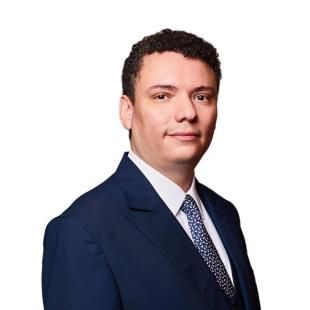Administrative Council of Tax Appeals (CARF) aligns with Labor Court precedents and rules out social security contributions on preventive health benefits
A significant win for companies that invest in employee well-being

Authors
The Administrative Council of Tax Appeals (CARF) has recently ruled that reimbursements for gym expenses are not subject to social security contributions provided they are classified as preventive health benefits and duly proven to be of a compensatory nature.
The case concerned reimbursements conditioned on proof of gym-related expenses, as established in a collective bargaining agreement, aimed at encouraging physical activity as a preventive health measure. In other words, the payments were in no way linked to the services actually performed by employees for the company.
In this context, CARF held that the payments did not constitute compensation for work performed, but rather an incentive for health and well-being, with a preventive purpose and no connection to regular remuneration.
Decision No. 2102-003.754 (July 2025) recognized the compensatory nature of the benefit, based on the particularities outlined above, and excluded it from the calculation base of contributions to the National Social Security Institute (INSS), especially because the amounts paid do not have a remunerative character — an essential element for payroll taxation under Law No. 8,212/91 (the Social Security Financing Law), as well as in accordance with Precedents 20 and 72 of the Brazilian Supreme Court (STF) and Precedent 478 of the Superior Court of Justice (STJ).
CARF’s decision, therefore, aligns with the prevailing case law of Brazilian Superior Courts, according to which only payments of a remunerative nature may be included in the calculation base of INSS contributions. It is also consistent with the position of the Labor Courts, which adopt the same rationale. There is, thus, a clear coherence between judicial precedents and CARF’s position, as required by article 926 of the Brazilian Civil Procedure Code (CPC), reinforcing legal certainty.
In practice, CARF’s stance represents a significant development in administrative jurisprudence, as it aligns with the understanding that benefits aimed at collective health and lacking remunerative regularity should not be treated salary items, nor included in the calculation base of social security contributions.
Also, this decision represents a significant step forward in legal certainty for companies, particularly in a context where health and well-being benefits are gaining increasing prominence in internal HR policies. Activities such as gym memberships, psychotherapy, consultations with nutritionists, and mental health programs now form part of a new landscape of employee benefits,
and properly structuring these programs is essential to mitigate the risk of tax assessments or labor claims.
Companies that structure their benefit programs around clear internal policies, robust supporting documentation, and alignment with collective bargaining instruments can not only mitigate the risk of assessments and tax liabilities but also gain reputational value by adopting practices that combine legal compliance with social responsibility. The clarity provided by CARF allows employers to expand their health incentive programs without fear of unfavorable tax interpretations, thereby reinforcing legal certainty and promoting a healthier a healthier, more productive, and financially sustainable corporate environment.
Although based on a specific case, the precedent signals a more modern interpretive approach aligned with the spirit of social security legislation, recognizing the compensatory nature of preventive health benefits and their strategic role in supporting employee well-being and organizational sustainability.
It is, therefore, an excellent opportunity for companies to review their benefit programs, adjust internal procedures, and ensure legal certainty - while maintaining focus on the physical and mental health of their teams.
FAS Advogados is available to assist in case of any doubts.




